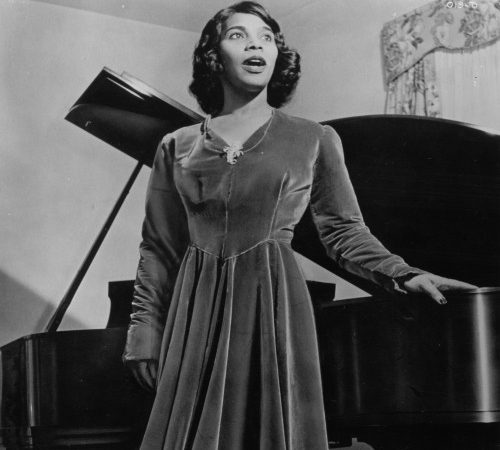By Kalila Farrakhan
Negro Spirituals is a genre of music that was created from the African Americans who wanted to find a way to express their love for Christianity in their African rituals. Negro Spirituals exposes the downside of Feminism because feminism only highlighted white women, rather than all women, during the era of the Negro Spiritual.
Marian Anderson (1902-1993) was a phenomenal singer and activist who is known for singing Negro Spirituals. One of her most well-known accolades is that she was the first African American to perform at the Metropolitan Opera in 1955. This was a major feat for Black Americans all across the world who were once ridiculed for their musical talents. As a black woman who overcame all odds to become the first African American to perform at the Metropolitan Opera, she remains a feminist icon.
Before she was allowed to sing at the opera, Anderson worked tirelessly to be the featured act at the Constitution Hall, but was prohibited due to her race. Ironically, Daughters of the American Revolution, a women’s organization created due to the exclusion from the men’s organization, prevented Marian Anderson from performing there due to their racially-exclusive policies.
Marian Anderson and the Daughters of the American Revolution provides a clear example of the downfall of Feminism. Women who are oppressed by men and the patriarchal society further oppress one another by finding their own differences, through race, ability, and other distinguishing characteristics. In the beginnings of feminism, many white feminists chose to exclude black women and other women of color from their agendas and organizations because they valued their whiteness over their womanhood.
The division that is allowed with Feminism only further oppresses women because it does not allow us to unite under the patriarchal system. Only uniting will allow us to truly be equal.

Here lies a video of Marian Anderson to remind us all of where we have been and how far we need to go.
References
Burnim, M. V. & Maultsby, P. K. (2015). Title African American Music: An Introduction, Second Edition. Routledge.
National Society Daughters of the American Revolution (NSDAR). https://www.dar.org/national-society/what-we-do

Login to your account